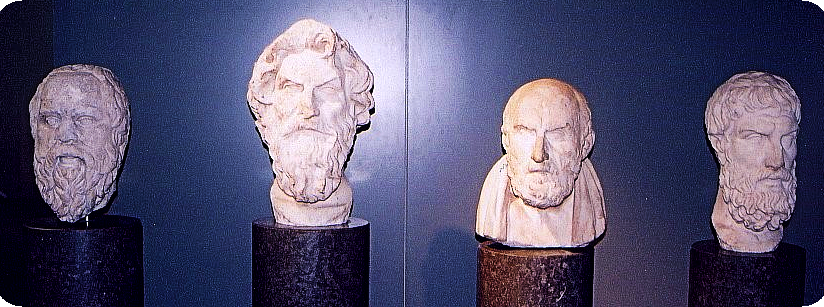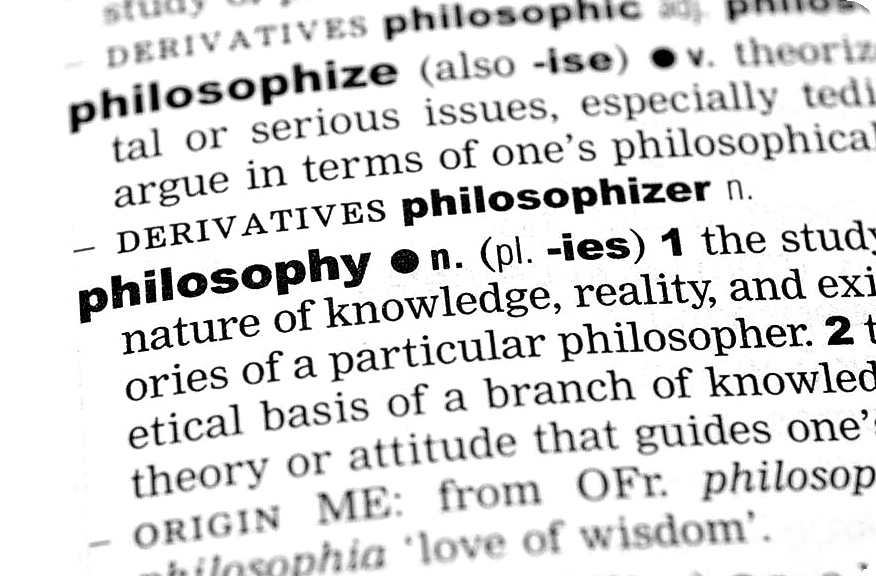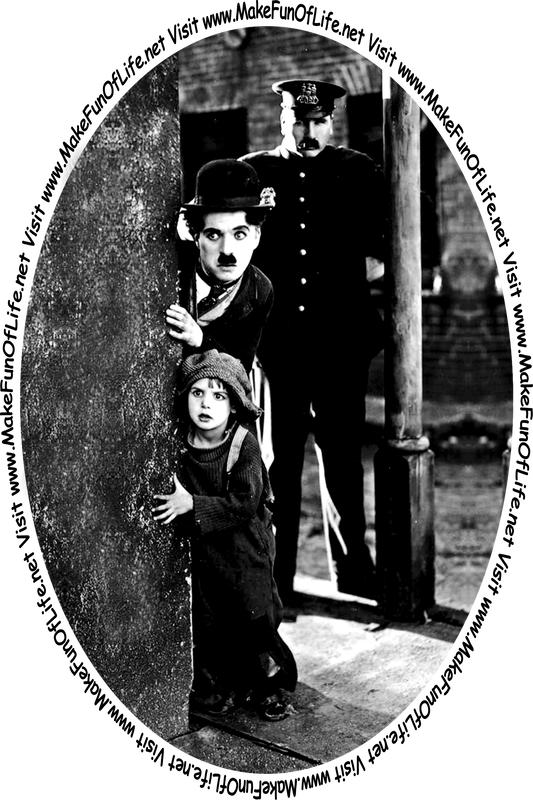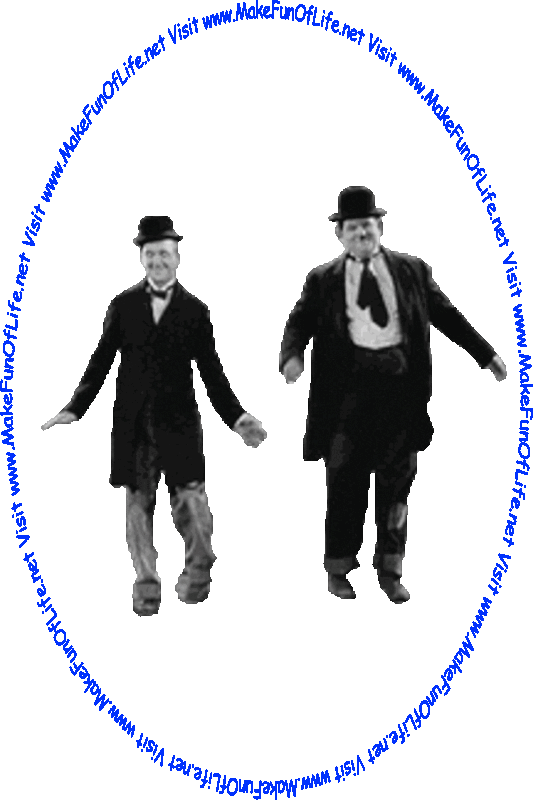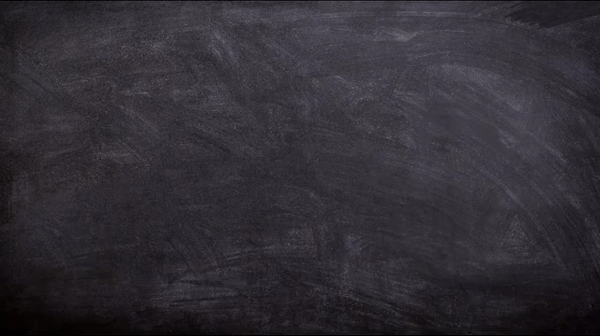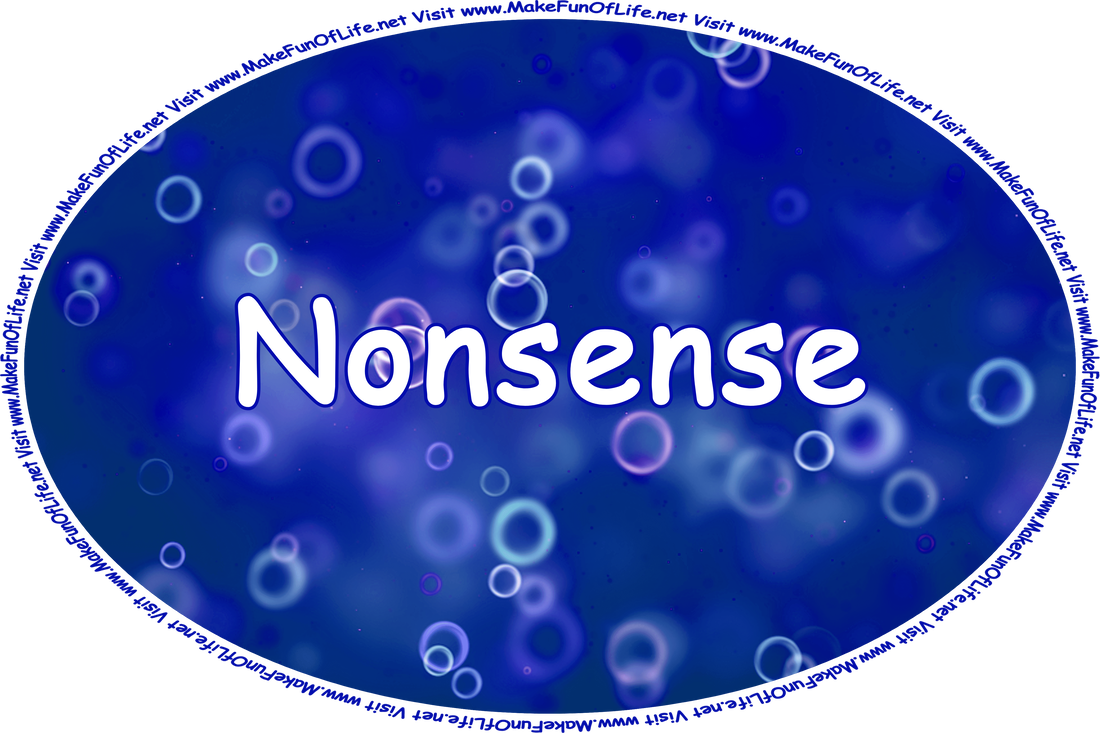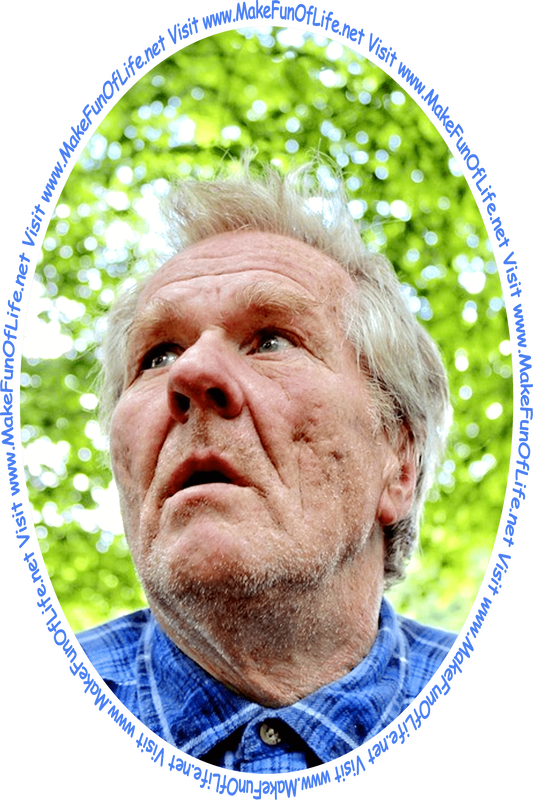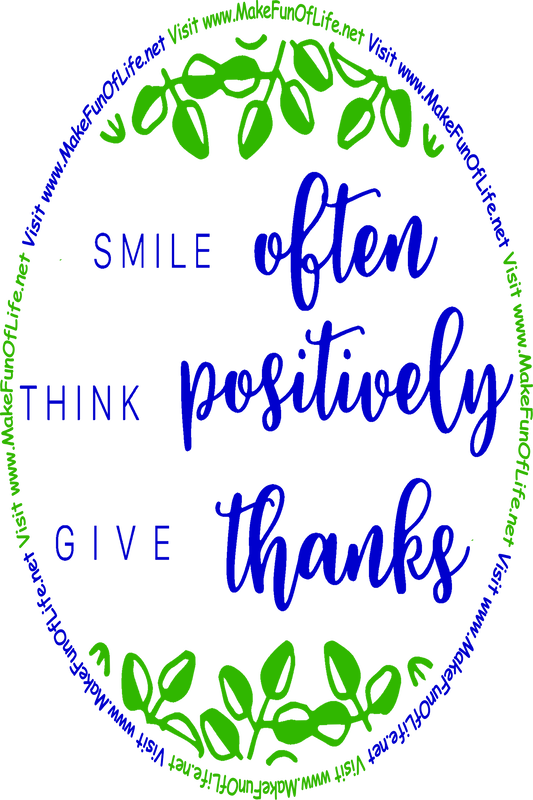As can be seen from these statues of ancient philosophers, they consisted entirely of heads, with no arms or legs or bodies, and so they spent their lives deep in thought . . .
The French existentialist Jean-Paul Sartre was sitting in a diner when a waitress approached him. “Can I get you something to drink, Monsieur Sartre?” Sartre replied, “Yes, I would like a cup of coffee with sugar, but no cream.” Nodding, the waitress walked off to fill the order, and Sartre returned to working. A few minutes later, however, the waitress returned and said, “I’m sorry, Monsieur Sartre, we are all out of cream - how about with no milk?”
“There is nothing so absurd but that some philosopher has said it.” -Cicero (Marcus Tullius Cicero (106 B.C.E. - 43 B.C.E.)): “De Divinatione” (“On Divination”) (44 B.C.E.), book 2, chapter 119, section 58
The following are thought to be profound thoughts from famous philosophers.
1. “To be is to do.” -Socrates (470 B.C.E. - 399 B.C.E.)
2. “To do is to be.” -Jean-Paul Sartre (1905 - 1980)
3. “Do be do be do.” -Frank Sinatra (1915 - 1998)
“I think, therefore I am.” [translation to English]
“Je pense, donc je suis.” [original French]
-René Descartes (1596 - 1650): “Discours de la méthode” (“Discourse on the Method”) (1637)
Monsieur Sartre liked this line so much that he used it again as follows.
“I think, therefore I am.” [translation to English]
“Cogito ergo sum.” [original Latin]
-René Descartes (1596 - 1650): “Principia philosophiae” (“Principles of Philosophy”) (1644)
“Philosophum non facit barba.” [original Latin]
“The beard does not define a philosopher.” [translation to English]
-Author Unknown
“Cartesian, adj. Relating to Descartes, a famous philosopher, author of the celebrated dictum, ‘Cogito ergo sum’ - whereby he was pleased to suppose he demonstrated the reality of human existence. The dictum might be improved, however, thus: ‘Cogito cogito ergo cogito sum’ - ‘I think that I think, therefore I think that I am;’ as close an approach to certainty as any philosopher has yet made.” -Ambrose Bierce (Ambrose Gwinnett Bierce (1842 - 1914)): “The Cynic’s Word Book” (1906; retitled in 1911 as “The Devil’s Dictionary”)
“I am, because my little dog knows me.” -Gertrude Stein (1874 - 1946): “Identity a Poem” (1936)
“Cogito ergo spud.”
“I think, therefore I yam.”
-Graffito reported by Herb Caen
“I think, therefore, I yam . . . or potato, perhaps . . .” -Author Unknown
“Being a philosopher, I have a problem for every solution.” -Author Unknown
“At times I think, and at times I am.” -Author Unknown
“I have studied many philosophers and many cats. The wisdom of cats is infinitely superior.” -Hippolyte Taine (Hippolyte Adolphe Taine (1828 - 1893))
“I think, therefore I am overqualified.” -Author Unknown
“Philosophy: unintelligible answers to insoluble problems.” -Henry Brooks Adams: as quoted in Bert Leston Taylor: “The So-Called Human Race” (1922)
“I think, therefore I am a waffle.” [original English]
“Cogito eggo sum.” [translation to pseudo-Latin]
-Author Unknown: as quoted in “New York” (23 December 1985) magazine
“Philosophy, noun: A route of many roads leading from nowhere to nothing.” - Ambrose Bierce (Ambrose Gwinnett Bierce (1842 - 1914)): “The Cynic’s Word Book” (1906; retitled in 1911 as “The Devil’s Dictionary”)
“An idealist is one who, on noticing that roses smell better than a cabbage, concludes that it will also make better soup.” -H. L. Mencken (Henry Louis Mencken (1880 - 1956))
“I think I am. Therefore, I am . . . I think.” [original English]
“Cogito sum, ergo sum cogito.” [translated to Latin]
-attributed to George Carlin (1937 - 2008)
Percy: I think, therefore I am . . . I think . . . what do you think?
Mercy: I am not sure, therefore, I mumble.
“I doubt, therefore, I might be.” -Author Unknown
“The highest point of philosophy is to be both wise and simple; this is the angelic life.” -attributed to John Chrysostom (about C.E. 347 - C.E. 407)
“I forget, therefore, I was.” -Author Unknown
“The reason to get a degree in philosophy is so that you can become a professor in philosophy and teach other students how to get degrees in philosophy so they can become professors in philosophy . . . and so on to infinity. Nothing exists outside this construct . . . nothing else is real. In time, all matter in the Universe and everything that has, does, can, or will exist, consists of philosophy professors. Beware, however, as their low mumblings, interspersed with periodic outbreaks of philosophical arguments, could threaten to break down the entire system and return everything to a primordial state of matter and energy, which contains no known traces of philosophers or philosophies, other than that it exists. Now what were you saying?” -David Hugh Beaumont (born 1966)
Knock, knock.
Who’s there?
Plato.
Plato, who?
Plato fish and chips, please.
The French existentialist Jean-Paul Sartre was sitting in a diner when a waitress approached him. “Can I get you something to drink, Monsieur Sartre?” Sartre replied, “Yes, I would like a cup of coffee with sugar, but no cream.” Nodding, the waitress walked off to fill the order, and Sartre returned to working. A few minutes later, however, the waitress returned and said, “I’m sorry, Monsieur Sartre, we are all out of cream - how about with no milk?”
“There is nothing so absurd but that some philosopher has said it.” -Cicero (Marcus Tullius Cicero (106 B.C.E. - 43 B.C.E.)): “De Divinatione” (“On Divination”) (44 B.C.E.), book 2, chapter 119, section 58
The following are thought to be profound thoughts from famous philosophers.
1. “To be is to do.” -Socrates (470 B.C.E. - 399 B.C.E.)
2. “To do is to be.” -Jean-Paul Sartre (1905 - 1980)
3. “Do be do be do.” -Frank Sinatra (1915 - 1998)
“I think, therefore I am.” [translation to English]
“Je pense, donc je suis.” [original French]
-René Descartes (1596 - 1650): “Discours de la méthode” (“Discourse on the Method”) (1637)
Monsieur Sartre liked this line so much that he used it again as follows.
“I think, therefore I am.” [translation to English]
“Cogito ergo sum.” [original Latin]
-René Descartes (1596 - 1650): “Principia philosophiae” (“Principles of Philosophy”) (1644)
“Philosophum non facit barba.” [original Latin]
“The beard does not define a philosopher.” [translation to English]
-Author Unknown
“Cartesian, adj. Relating to Descartes, a famous philosopher, author of the celebrated dictum, ‘Cogito ergo sum’ - whereby he was pleased to suppose he demonstrated the reality of human existence. The dictum might be improved, however, thus: ‘Cogito cogito ergo cogito sum’ - ‘I think that I think, therefore I think that I am;’ as close an approach to certainty as any philosopher has yet made.” -Ambrose Bierce (Ambrose Gwinnett Bierce (1842 - 1914)): “The Cynic’s Word Book” (1906; retitled in 1911 as “The Devil’s Dictionary”)
“I am, because my little dog knows me.” -Gertrude Stein (1874 - 1946): “Identity a Poem” (1936)
“Cogito ergo spud.”
“I think, therefore I yam.”
-Graffito reported by Herb Caen
“I think, therefore, I yam . . . or potato, perhaps . . .” -Author Unknown
“Being a philosopher, I have a problem for every solution.” -Author Unknown
“At times I think, and at times I am.” -Author Unknown
“I have studied many philosophers and many cats. The wisdom of cats is infinitely superior.” -Hippolyte Taine (Hippolyte Adolphe Taine (1828 - 1893))
“I think, therefore I am overqualified.” -Author Unknown
“Philosophy: unintelligible answers to insoluble problems.” -Henry Brooks Adams: as quoted in Bert Leston Taylor: “The So-Called Human Race” (1922)
“I think, therefore I am a waffle.” [original English]
“Cogito eggo sum.” [translation to pseudo-Latin]
-Author Unknown: as quoted in “New York” (23 December 1985) magazine
“Philosophy, noun: A route of many roads leading from nowhere to nothing.” - Ambrose Bierce (Ambrose Gwinnett Bierce (1842 - 1914)): “The Cynic’s Word Book” (1906; retitled in 1911 as “The Devil’s Dictionary”)
“An idealist is one who, on noticing that roses smell better than a cabbage, concludes that it will also make better soup.” -H. L. Mencken (Henry Louis Mencken (1880 - 1956))
“I think I am. Therefore, I am . . . I think.” [original English]
“Cogito sum, ergo sum cogito.” [translated to Latin]
-attributed to George Carlin (1937 - 2008)
Percy: I think, therefore I am . . . I think . . . what do you think?
Mercy: I am not sure, therefore, I mumble.
“I doubt, therefore, I might be.” -Author Unknown
“The highest point of philosophy is to be both wise and simple; this is the angelic life.” -attributed to John Chrysostom (about C.E. 347 - C.E. 407)
“I forget, therefore, I was.” -Author Unknown
“The reason to get a degree in philosophy is so that you can become a professor in philosophy and teach other students how to get degrees in philosophy so they can become professors in philosophy . . . and so on to infinity. Nothing exists outside this construct . . . nothing else is real. In time, all matter in the Universe and everything that has, does, can, or will exist, consists of philosophy professors. Beware, however, as their low mumblings, interspersed with periodic outbreaks of philosophical arguments, could threaten to break down the entire system and return everything to a primordial state of matter and energy, which contains no known traces of philosophers or philosophies, other than that it exists. Now what were you saying?” -David Hugh Beaumont (born 1966)
Knock, knock.
Who’s there?
Plato.
Plato, who?
Plato fish and chips, please.
So you want to be a philosopher? First, you should consider the practical implications of your chosen pursuit. What will become of you? How much do philosophers earn in a year? What do philosophers actually produce? What kind of people would you be working with? What would people think of you? Where would you live? What kind of shoes do philosophers wear?
“Sometimes I don’t think, so I might not be.” -Author Unknown
Philosophobia is a persistent fear of philosophy or of philosophers. Possibly some people might not want to be bored to excruciation . . .
“I’m an idealist. I don’t know where I’m going, but I’m on my way.” -Carl Sandburg (1878 - 1967)
“Any philosophy that can be put in a nutshell belongs there.” -Sydney J. Harris (Sydney Justin Harris (1917 - 1986))
“A philosopher went into a closet for ten years to contemplate the question, ‘What is life?’ When he came out, he went into the street and met an old colleague, who asked him where in Heaven’s name he had been all those years. ‘In a closet,’ he replied. ‘I wanted to know what life really is.’ ‘And have you found the answer?’ ‘Yes,’ he replied. ‘I think it can best be expressed by saying that life is like a bridge.’ ‘That’s well and good,’ replied the colleague, ‘but can you be a little more explicit? Can you tell me how life is like a bridge?’ ‘Oh,’ replied the philosopher, after some thought, ‘maybe you’re right - perhaps life is not like a bridge.’” - Raymond Smullyan: “5,000 B.C. and Other Philosophical Fantasies” (15 February 1983)
Marge: What is the difference between a philosopher and an engineer?
Madge: About $190,000 a year.
“The point of philosophy is to start with something so simple as to seem not worth stating, and to end with something so paradoxical that no one will believe it.” -Bertrand Russell (Bertrand Arthur William Russell (1872 - 1970)): “Science and Religion” (1935)
“Philosophy is a game with objectives and no rules; mathematics is a game with rules and no objectives.” -Author Unknown
Ancient philosophers, in attempting to understand the world in which they lived, placed humans and chickens into the same category, since both are bipeds, that is, creatures that walk upright on two legs. We have come a long way since then . . . maybe.
Nellie: How many Marxists does it take to change a light bulb?
Neal: None; every light bulb contains the seeds of its own ‘revolution.’
“There is no record in history of a happy philosopher.” -H. L. Mencken (Henry Louis Mencken (1880 - 1956)): as quoted in Herbert V. Prochnow: “Speaker’s Handbook of Epigrams and Witticisms” (1955)
“A great truth is a truth whose opposite is also a great truth.” -Christopher Morley (Christopher Darlington Morley (1890 - 1957))
Be careful that no one else’s karma runs over your dogma! (car-ma, dog-ma)
1. The First Law of Philosophy: For every philosopher, there exists an equal and opposite philosopher.
2. The Second Law of Philosophy: They are both wrong.
I Will Be a Toad
“Think as I think,” said a man,
“Or you are abominably wicked;
You are a toad.”
And after I had thought of it,
I said, “I will, then, be a toad.”
by Stephen Crane (1871 - 1900)
“If I wished to punish a province, I would have it governed by philosophers.” -Frederick the Great
Aristotle: Why did the chicken cross the road?
Plato: For the greater good.
The French philosopher René Descartes was in a cafe having a cup of tea. A waiter asked him if he would like another. “I think not,” Mr. Descartes said, and then he promptly vanished in a puff of philosophy.
I’m Not Really Here
There was a young student called Fred,
Who was questioned on Descartes and said:
“It’s perfectly clear
That I’m not really here,
For I haven’t a thought in my head.”
by V. R. Ormerod
A college dean, on speaking to the staff of the physics department, said, “Why do I always have to give you guys so much money for laboratories and expensive equipment and stuff? Why can’t you be like the math department - all they need is money for pencils, paper, and wastebaskets. Or even better, like the philosophy department - all they need is pencils and paper.”
“Given time and plenty of paper, a philosopher can prove anything.” -Robert A. Heinlein (Robert Anson Heinlein (1907 - 1988)): “Double Star” (1956)
“Philosophers are adults who persist in asking childish questions.” -Isaiah Berlin
“There is only one thing a philosopher can be relied upon to do, and that is to contradict other philosophers.” -William James (1842 - 1910)
Philosophy drips gently from his tongue
Who hath three meals a day in guarantee.
-Christopher Morley (Christopher Darlington Morley (1890 - 1957)): “Parson’s Pleasure” (1923), ‘So This Is Arden’
Is knowledge knowable? If not, how do we know this?
“A serious and good philosophical work could be written consisting entirely of jokes.” -Ludwig Wittgenstein (1889 - 1951): as quoted in Henry Dribble: “Philosophical Investigations from the Sanctity of the Press” (15 November 2004), ‘A View from the Asylum,’ page 87
Reality: The dream of a mad philosopher.
“Monism is the theory that anything less than everything is nothing.” -Saul Gorn: “S. Gorn’s Compendium of Rarely Used Clichés,” as quoted in Raymond Smullyan: “5,000 B.C. and Other Philosophical Fantasies” (15 February 1983)
“To make light of philosophy is to be a true philosopher.” -Blaise Pascal (1623 - 1662)
“Most philosophers are poor, so most of them give the poor the best of it.” -Edgar W. Howe (Edgar Watson ‘Ed’ Howe, also known as E. W. Howe (1853 - 1937))
“There is no record in human history of a happy philosopher, they exist only in romantic legends.” -George Santayana (1863 - 1952)
“I have tried, too, in my time to be a philosopher, but I don’t know how; cheerfulness was always breaking in.” -Oliver Edwards
“‘There are no truths,’ he [Nietzsche] wrote, ‘only interpetations.’ Now, either what Nietzsche said is true - in which case it is not true, since there are no truths - or it is false.” -Roger Scruton: “The West and the Rest” (2002), page 74
So, a while back, a decidedly unemployable derelict wandered onto a college campus, and the faculty helped him by buying for him a cup of coffee and then another. Being much impressed, they then granted to him an on-the-spot philosophy professorship because he could string together enough words to make the at-least meandering half-thoughts which they took for pure genius because they had never heard them uttered by such a weather-beaten and antique personage before . . . and that is the story of why today your philosophy professor has holes in the souls of his shoes and his clothes look all decayed and stuff and you do not want to stand too close to him because he smells funny . . . but he sure can make up some fascinating high falutin,’ sincere sounding sentences - and he does have that impeccable acclaimed ‘degree in philosophy.’
Philosopher Phil: Have you heard about the guy who went to the solipsist convention?
Philosopher Phoebe: Yes, it turned out that nobody showed up.
“Philosophy to him was rather like a maze in which he happened to find himself wandering, and what he was looking for was the way out.” -George Santayana (1863 - 1952): “Character and Opinion in the United States” (1920), referring to William James (1842 - 1910)
“Primum viveri diende philosophari.” [original Latin]
“Live before you philosophize.” [translation to English]
-Author Unknown
Philosophers ask questions such as, “Why is there something rather than nothing?” and “What is real?” and “Do we have free-will or are our lives predestined?” and “Why is yellow yellow and not orange or 6.12?”
“I am sitting with a philosopher in the garden; he says again and again, ‘I know that that’s a tree,’ pointing to a tree that is near us. Someone else arrives and hears this, and I tell them, ‘This fellow isn’t insane. We are only doing philosophy.’” -Ludwig Wittgenstein (1889 - 1951)
“The true function of philosophy is to educate us in the principles of reasoning and not to put an end to further reasoning by the introduction of fixed conclusions.” -George Henry Lewes (1817 - 1878): “The Biographical History of Philosophy”
We can make fun of philosophy and even call it idle musings, because philosophers have said some very amusing things across the span of human history, and we suspect that sometimes they were being funny - on purpose! However, it is worth noting that philosophy began as an attempt to understand ourselves and our world. Many sciences began in philosophy: mathematics, chemistry, biology, medicine, and so forth. From these sciences have sprung developments including many of the things we now take for granted, from larger crop yields to being able to launch rockets into space to treatments for infectious diseases. Thanks, philosophers!
This is MFOL! . . . we add new articles regularly, so be sure to visit often . . .
“Sometimes I don’t think, so I might not be.” -Author Unknown
Philosophobia is a persistent fear of philosophy or of philosophers. Possibly some people might not want to be bored to excruciation . . .
“I’m an idealist. I don’t know where I’m going, but I’m on my way.” -Carl Sandburg (1878 - 1967)
“Any philosophy that can be put in a nutshell belongs there.” -Sydney J. Harris (Sydney Justin Harris (1917 - 1986))
“A philosopher went into a closet for ten years to contemplate the question, ‘What is life?’ When he came out, he went into the street and met an old colleague, who asked him where in Heaven’s name he had been all those years. ‘In a closet,’ he replied. ‘I wanted to know what life really is.’ ‘And have you found the answer?’ ‘Yes,’ he replied. ‘I think it can best be expressed by saying that life is like a bridge.’ ‘That’s well and good,’ replied the colleague, ‘but can you be a little more explicit? Can you tell me how life is like a bridge?’ ‘Oh,’ replied the philosopher, after some thought, ‘maybe you’re right - perhaps life is not like a bridge.’” - Raymond Smullyan: “5,000 B.C. and Other Philosophical Fantasies” (15 February 1983)
Marge: What is the difference between a philosopher and an engineer?
Madge: About $190,000 a year.
“The point of philosophy is to start with something so simple as to seem not worth stating, and to end with something so paradoxical that no one will believe it.” -Bertrand Russell (Bertrand Arthur William Russell (1872 - 1970)): “Science and Religion” (1935)
“Philosophy is a game with objectives and no rules; mathematics is a game with rules and no objectives.” -Author Unknown
Ancient philosophers, in attempting to understand the world in which they lived, placed humans and chickens into the same category, since both are bipeds, that is, creatures that walk upright on two legs. We have come a long way since then . . . maybe.
Nellie: How many Marxists does it take to change a light bulb?
Neal: None; every light bulb contains the seeds of its own ‘revolution.’
“There is no record in history of a happy philosopher.” -H. L. Mencken (Henry Louis Mencken (1880 - 1956)): as quoted in Herbert V. Prochnow: “Speaker’s Handbook of Epigrams and Witticisms” (1955)
“A great truth is a truth whose opposite is also a great truth.” -Christopher Morley (Christopher Darlington Morley (1890 - 1957))
Be careful that no one else’s karma runs over your dogma! (car-ma, dog-ma)
1. The First Law of Philosophy: For every philosopher, there exists an equal and opposite philosopher.
2. The Second Law of Philosophy: They are both wrong.
I Will Be a Toad
“Think as I think,” said a man,
“Or you are abominably wicked;
You are a toad.”
And after I had thought of it,
I said, “I will, then, be a toad.”
by Stephen Crane (1871 - 1900)
“If I wished to punish a province, I would have it governed by philosophers.” -Frederick the Great
Aristotle: Why did the chicken cross the road?
Plato: For the greater good.
The French philosopher René Descartes was in a cafe having a cup of tea. A waiter asked him if he would like another. “I think not,” Mr. Descartes said, and then he promptly vanished in a puff of philosophy.
I’m Not Really Here
There was a young student called Fred,
Who was questioned on Descartes and said:
“It’s perfectly clear
That I’m not really here,
For I haven’t a thought in my head.”
by V. R. Ormerod
A college dean, on speaking to the staff of the physics department, said, “Why do I always have to give you guys so much money for laboratories and expensive equipment and stuff? Why can’t you be like the math department - all they need is money for pencils, paper, and wastebaskets. Or even better, like the philosophy department - all they need is pencils and paper.”
“Given time and plenty of paper, a philosopher can prove anything.” -Robert A. Heinlein (Robert Anson Heinlein (1907 - 1988)): “Double Star” (1956)
“Philosophers are adults who persist in asking childish questions.” -Isaiah Berlin
“There is only one thing a philosopher can be relied upon to do, and that is to contradict other philosophers.” -William James (1842 - 1910)
Philosophy drips gently from his tongue
Who hath three meals a day in guarantee.
-Christopher Morley (Christopher Darlington Morley (1890 - 1957)): “Parson’s Pleasure” (1923), ‘So This Is Arden’
Is knowledge knowable? If not, how do we know this?
“A serious and good philosophical work could be written consisting entirely of jokes.” -Ludwig Wittgenstein (1889 - 1951): as quoted in Henry Dribble: “Philosophical Investigations from the Sanctity of the Press” (15 November 2004), ‘A View from the Asylum,’ page 87
Reality: The dream of a mad philosopher.
“Monism is the theory that anything less than everything is nothing.” -Saul Gorn: “S. Gorn’s Compendium of Rarely Used Clichés,” as quoted in Raymond Smullyan: “5,000 B.C. and Other Philosophical Fantasies” (15 February 1983)
“To make light of philosophy is to be a true philosopher.” -Blaise Pascal (1623 - 1662)
“Most philosophers are poor, so most of them give the poor the best of it.” -Edgar W. Howe (Edgar Watson ‘Ed’ Howe, also known as E. W. Howe (1853 - 1937))
“There is no record in human history of a happy philosopher, they exist only in romantic legends.” -George Santayana (1863 - 1952)
“I have tried, too, in my time to be a philosopher, but I don’t know how; cheerfulness was always breaking in.” -Oliver Edwards
“‘There are no truths,’ he [Nietzsche] wrote, ‘only interpetations.’ Now, either what Nietzsche said is true - in which case it is not true, since there are no truths - or it is false.” -Roger Scruton: “The West and the Rest” (2002), page 74
So, a while back, a decidedly unemployable derelict wandered onto a college campus, and the faculty helped him by buying for him a cup of coffee and then another. Being much impressed, they then granted to him an on-the-spot philosophy professorship because he could string together enough words to make the at-least meandering half-thoughts which they took for pure genius because they had never heard them uttered by such a weather-beaten and antique personage before . . . and that is the story of why today your philosophy professor has holes in the souls of his shoes and his clothes look all decayed and stuff and you do not want to stand too close to him because he smells funny . . . but he sure can make up some fascinating high falutin,’ sincere sounding sentences - and he does have that impeccable acclaimed ‘degree in philosophy.’
Philosopher Phil: Have you heard about the guy who went to the solipsist convention?
Philosopher Phoebe: Yes, it turned out that nobody showed up.
“Philosophy to him was rather like a maze in which he happened to find himself wandering, and what he was looking for was the way out.” -George Santayana (1863 - 1952): “Character and Opinion in the United States” (1920), referring to William James (1842 - 1910)
“Primum viveri diende philosophari.” [original Latin]
“Live before you philosophize.” [translation to English]
-Author Unknown
Philosophers ask questions such as, “Why is there something rather than nothing?” and “What is real?” and “Do we have free-will or are our lives predestined?” and “Why is yellow yellow and not orange or 6.12?”
“I am sitting with a philosopher in the garden; he says again and again, ‘I know that that’s a tree,’ pointing to a tree that is near us. Someone else arrives and hears this, and I tell them, ‘This fellow isn’t insane. We are only doing philosophy.’” -Ludwig Wittgenstein (1889 - 1951)
“The true function of philosophy is to educate us in the principles of reasoning and not to put an end to further reasoning by the introduction of fixed conclusions.” -George Henry Lewes (1817 - 1878): “The Biographical History of Philosophy”
We can make fun of philosophy and even call it idle musings, because philosophers have said some very amusing things across the span of human history, and we suspect that sometimes they were being funny - on purpose! However, it is worth noting that philosophy began as an attempt to understand ourselves and our world. Many sciences began in philosophy: mathematics, chemistry, biology, medicine, and so forth. From these sciences have sprung developments including many of the things we now take for granted, from larger crop yields to being able to launch rockets into space to treatments for infectious diseases. Thanks, philosophers!
This is MFOL! . . . we add new articles regularly, so be sure to visit often . . .
